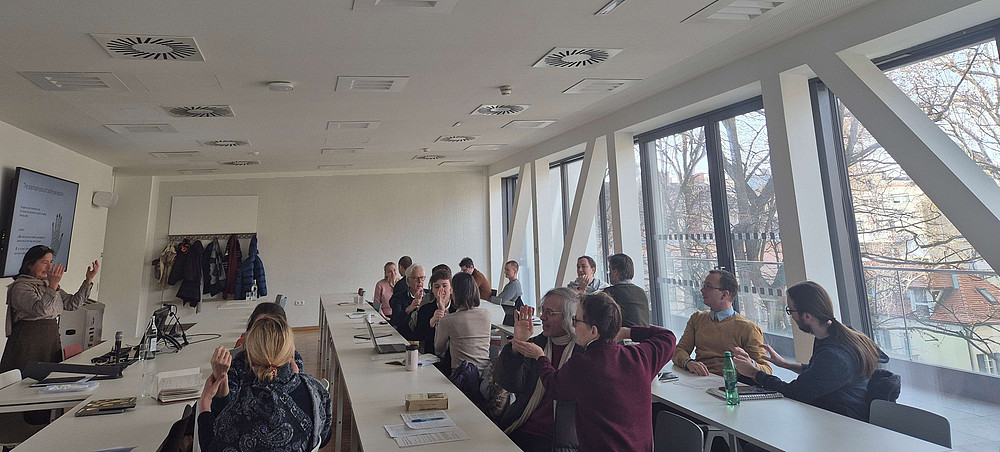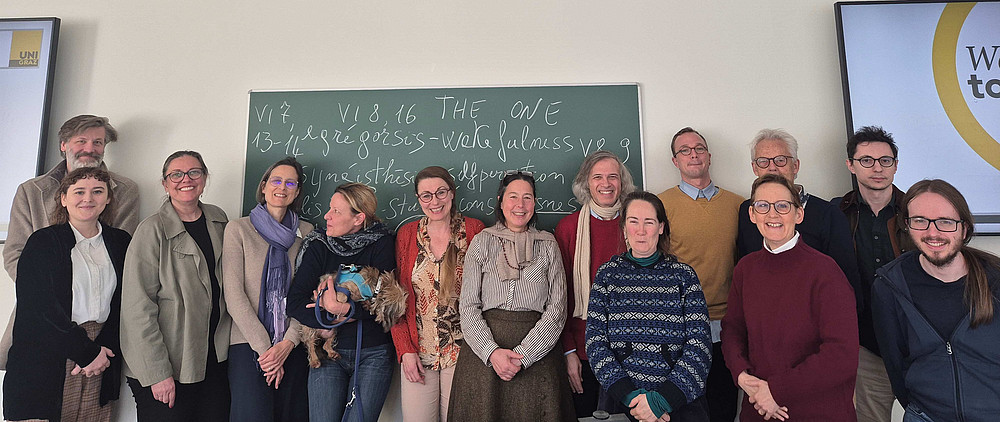Perceiving Nature(s): Epistemic, Artistic, and Political Practices as Contested Fields
The first event in the lecture series "Perceiving Nature(s): Epistemic, Artistic, and Political Practices as Contested Fields" was held on Thursday 6th February, with talks given by Professor Elisabeth Hsu (University of Oxford) and Professor Salvatore Lavecchia (University of Udine).
Professor Hsu, is a medical anthropologist focusing on Traditional Chinese Medicine (TCM) with an interdisciplinary background, incorporating biology, anthropology, linguistics and Sinology. She presented a number of cases from her research addressing the questions of how to understand the way patients perceive their pain and the way TCM doctors perceive their patients' perceptions of their pain. She suggested that the gap between Western biomedical and TCM understandings of disease is an issue of perception, and argued that in order to bring different forms of evidence into productive relationship a more sophisticated theory of perception is needed in medical studies. Phenomenological approaches to perception, for instance, which emphasise the intersubjective generation of phenomena and experiences, would provide a much needed corrective to the objectifying perceptual theories that currently dominate medical studies, and that as a result dismiss the value of patients' lived experience.


Salvatore Lavecchia, Professor of History of Ancient Philosophy, investigated the conception of nature in the thought of the Neo-Platonic philosopher Plotinus, providing a detailed and clear exposition of the systematic core of Plotinian thought. Nature for Plotinus is first and foremost a dimension of animate and intelligent existence, which is why its creative activity manifests itself as the incessant generation of living beings from the contemplation -theoria- of the noetic sphere of intelligence -nous- and of the first principle of the super-essential one.
The two main consequences of this conception are, firstly, that the perception in nature and of nature, aisthesis, is a form of intelligence, noesis, and secondly, that everything in nature is in a relation of harmony -harmonia- and sympathy -sympatheia- with everything, and that the ultimate reason for this interconnectedness is the latent, alias unconscious knowledge that nature derives from its unceasable connection with the principle of the one. A human's position in this context is ambivalent: they may fall victim to a mistaken individualism, which leads them to consider themself distant and superior to nature, but they also have the possibility of redeeming themself if, by turning their attention to contemplation of nature itself, they succeed in achieving that state of wakefulness -egregorsis- that leads them to discover in nous and noetic activity their authentic self.
The event brought together an audience of researchers and scholars from, among others, American studies, Intermediality studies, anthropology, musicology, the institute for interdisciplinary research on ageing and care, Ancient history and classical antiquities studies, philosophy. Responding to the stimulating talks, there were lively discussions addressing topics such as the resonances and dissonances between ancient Chinese and Greek, and more recent European philosophy, the role of music in understanding how we know the world, and the relation between different theories of perception and ethical action in the world.